Supporting our communities
When times are tough Australians pull together, to support each other and lend a hand. Australian universities are no different.
Universities are at the heart of their communities and are there to support people.
Universities are responding to the devastating floods across Australia by doing everything they can to help their students, staff and local communities through these difficult times.
Below you can find a list of what our member universities are doing to help.
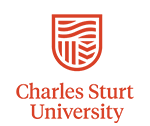 Charles sturt university
Charles sturt university
Charles Sturt University is providing emergency accommodation at its Orange campus for victims of the devastating floods in the Central West region of New South Wales.
The university is working with The NSW Department of Communities and Justice, the Salvos, Lifeline, Rotary and Orange Aboriginal Medical Service to organise food, clothing and transport, and other items for evacuees.
Donations and other offers of assistance are being coordinated centrally with the NSW Government. University staff and students are also assisting with logistics and pastoral care on the ground.
 LA Trobe University
LA Trobe University
With campuses located across regional Victoria, including in areas affected by the floods, La Trobe University is listening to its communities and their needs and continuing to respond and offer support as the situation evolves.
Working with local community leaders including Regional Advisory Boards and City Councils, the university is offering assistance where they can. This includes providing access to their Shepparton campus, which currently remains unaffected by flooding and working with secondary school partners to offer support for VCE students heading into exams.
Combining forces with partners at the University of Melbourne and GOTAFE in the Shepparton region, La Trobe University is helping with community recovery through projects such as longer-term research and planning on the challenges of housing, climate change and other relevant issues.
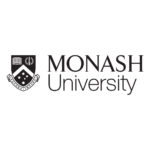 MONASH UNIVERSITY
MONASH UNIVERSITY
Monash University is encouraging its students and staff who may be impacted by the floods in Victoria to access the support services available through the University and external organisations.
Staff and students can access free, confidential counselling support through the University counselling service or contact the out-of-hours support line on 1300 STUDENT (1300 788 336). Staff and their immediate families can also seek support through the Employee Assistance Program.
Affected students who need financial support to help with daily expenses may be eligible for an emergency hardship grant. Students may also be eligible for special consideration and alternative arrangements to support their assessments and coursework. Students are encouraged to contact their course advisor to make them aware of their situation and discuss arrangements.
March 2022
 Australian Catholic University
Australian Catholic University
At a national level, ACU has provided a relief fund for students experiencing hardship from the floods in Brisbane and parts of NSW.
A snap survey of the 6,000 students and staff was conducted to match resources with their needs.
The offices of the Queensland Associate Vice-Chancellor, Campus Ministry and Engagement are providing financial aid for students to buy groceries, clean-up support, food preparation and grocery delivery.
ACU also has a partnership with a seminary on site which has offered accommodation, washing machines and a place to seek shelter.
Existing services and pastoral care include counselling, ACU’s Employee Assistance Program, crisis support, international student advisors and campus ministry.
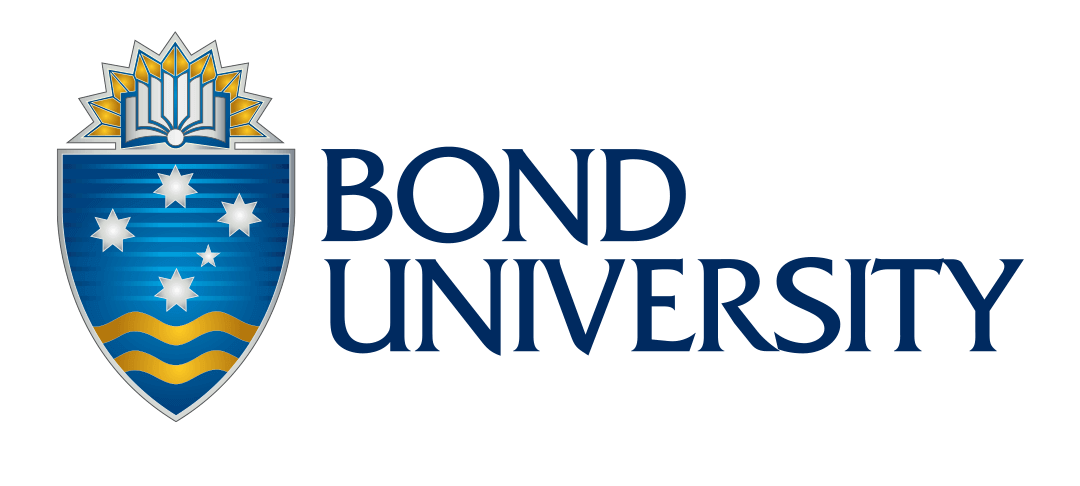 Bond University
Bond University
In response to the significant need for emergency psychological services, particularly in Northern NSW, Bond University’s Psychology Clinic quickly swung into action.
The university is offering free flood trauma counselling, conducted by provisionally registered psychologists who are completing their Master of Clinical Psychology degree.
Appointments can be made by calling 07 5595 2527 and the counselling sessions will be conducted via MS Teams or Zoom.
 CHARLES DARWIN UNIVERSITY
CHARLES DARWIN UNIVERSITY
The Charles Darwin University community have joined efforts to provide relief for people affected by the floods in Queensland and New South Wales.
The university established a floods appeal to support staff and students impacted by the natural disaster.
Donations to the appeal will also help the Australian Red Cross to provide disaster relief and humanitarian support to the broader community and people in need.
 The University of New England
The University of New England
UNE has made funds available for quick-response grants to students who are directly affected by floods, as well as offering measures such as extensions, deferrals and intermissions, to alleviate any additional pressure students might be feeling as they navigate this natural disaster.
Student leaders at Robb College have also made a very impressive start to a fundraising campaign they have initiated: raising about $9000 in just a few days, through a GoFundMe page and community events, to help victims of the floods.
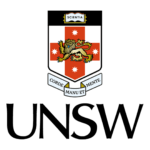 UNSW
UNSW
In response to flooding in New South Wales, UNSW is encouraging impacted students and staff to seek both financial and non-financial support available through the university.
Students are able to speak with their Course Convenor for assistance should their ability to study or complete assessments be disrupted by the floods. Similarly, UNSW student support advisors stand ready to be contacted if students need to speak to someone about their wellbeing.
The university offers a dedicated fund for staff facing exceptional financial hardship and needing emergency support. Staff and their families are also encouraged to access the Employee Assistance Program which offers free, confidential counselling and wellbeing support.
 Queensland University of Technology
Queensland University of Technology
QUT responded to the south-east Queensland and Northern NSW flooding with a range of support for staff, students, and the broader community.
Frequent communications from the Vice-Chancellor and Registrar provided timely updates to the community and encouraged impacted staff and students to seek financial and non-financial support from the university.
Emergency financial and accommodation assistance, welfare and medical support was made available for affected QUT students. QUT also provided special paid leave for ongoing and fixed-term staff who were impacted by the disaster.
The Vice-Chancellor set up an emergency fund to provide immediate financial assistance to staff in need of help.
Week 1 of Semester 1 was delayed one week, with online learning beginning on 7 March. Students returned to campuses from 14 March with ‘Welcome Week’ celebrating student life and engagement opportunities.
To support the media and ensure accurate and research-backed information was being provided to the public, QUT created a media advisory of QUT experts who were available for interview on a variety of topics related to the floods.
 SOUTHERN CROSS UNIVERSITY
SOUTHERN CROSS UNIVERSITY
Southern Cross University has played a pivotal role in rescue and recovery efforts across the region.
The University’s Lismore Campus was designated as the primary emergency evacuation centre, with more than 1000 people gathered there at one stage.
Emergency supplies came from every corner of the community, distributed by volunteers, many of them Southern Cross staff and students who simply turned up to help.
Southern Cross University’s Academic and Biochemical researcher, Brad Eyre, performed more than 50 rescues in his tinny.
A Sikh Volunteers Australia team drove from Melbourne to use the campus Uni-Bar kitchen to cook hundreds of meals and feed the mud army as the clean-up began.
The uni campus was used as a business recovery hub, for volunteer co-ordination, for legal support, a banking hub and as a focal point for the police and ADF, holding the Northern Rivers infrastructure together.
And further south, where floodwaters threatened the Mid North Coast oyster industry, the University’s National Marine Science Centre was able to house three million oyster babies for all flood affected commercial farmers in the area, meaning their livelihood literally survived.
Southern Cross University has granted any staff who need it ten days of special leave to deal with the clean-up, to volunteer and help if they can.
A student hardship fund has been established to assist students in need and the call has gone out to alumni and partners to support a fundraising appeal directly for students.
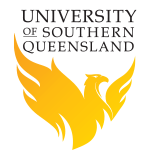 University of Southern Queensland
University of Southern Queensland
Buildings at all three of the campuses of the University of Southern Queensland experienced some damage due to the weather conditions, and the Ipswich and Springfield campuses were closed for three days due to issues with access and safety. Staff and students across the campuses personally experienced loss and damage to homes and vehicles.
As the focus shifted to community recovery, the university committed to supporting staff to engage in local recovery activities. As part of this, staff members could opt to take a special day’s paid leave to assist with their own clean-up, volunteer activities or care for children with many schools closed.
The University also mobilised funds for students impacted by flooding in Toowoomba, the Lockyer Valley, Ipswich, Brisbane and northern NSW, by reinvigorating the Student Emergency Support Fund, which the university set up in 2020 to assist students in the COVID-19 pandemic.
Students can also access support around their studies.
 University of The Sunshine Coast
University of The Sunshine Coast
USC continues to support its students, colleagues and communities following the recent flood and are immensely proud of their response – from quickly switching to online learning to converting their stadium to an evacuation centre for stranded travellers and those forced out of their homes by floodwaters.
As the focus now turns to the massive clean-up, recovery and rebuilding efforts, USC has implemented a range of support to those who have been impacted:
- Financial donations were made to both the Salvation Army and Red Cross flood relief appeals, to help the charities provide much needed practical and emotional support to those impacted by the floods across our regions;
- USC staff who were directly affected by evacuations and damage or loss to homes, or indirectly through impacts on colleagues, friends and family were able to use Natural Disaster Leave and access support through the Employee Assistance Program (EAP);
- Students who experienced unexpected financial hardship due to the floods were able to access emergency support services.
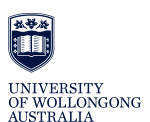 University of Wollongong
University of Wollongong
The University of Wollongong has implemented a range of initiatives to support our students, staff and local communities impacted by the devastating NSW & QLD floods. Staff and students affected are able to access emergency support, including food and accommodation, along with access to UOW’s free support services, including UOW’s Employee Assistance Program (LifeWorks) or UOW 24-hour Student Wellbeing Support Line. Students are also encouraged to apply for academic consideration if their studies have been impacted in any way by recent events. Flood relief appeals also continue to take place across UOW’s Wollongong campus.

